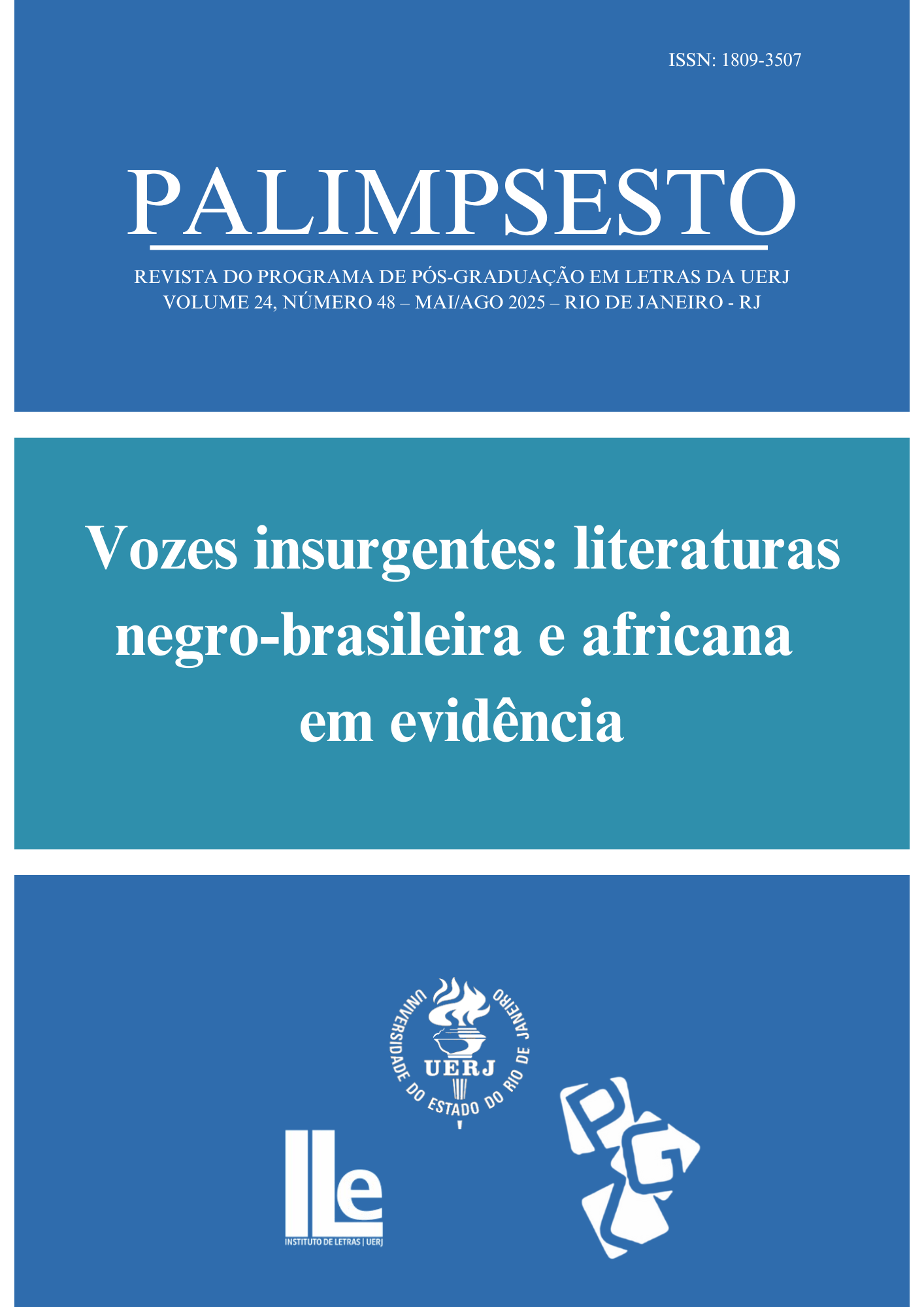Entre Macabéa e o seu oposto: uma reflexão a respeito da masculinidade em “A hora da estrela”, de Clarice Lispector
DOI:
https://doi.org/10.12957/palimpsesto.2025.83443Keywords:
masculinidade, A Hora da Estrela, Teoria de gêneroAbstract
This article focuses on the presence of the masculine in the novel A Hora da Estrela by Clarice Lispector. Considering that the narrator is a writer, Rodrigo S. M. facing the mystery of Macabéa and attempting to describe it, the perspective starts from the male gaze towards the female. The objective is to describe how the interactions of male characters in the narrative unfold, considering the narrator and the protagonist Macabéa. To achieve this, the article draws on Judith Butler's gender performance theory, Stuart Hall's theories on identity and some concepts of Bourdieu regarding masculinity. Ultimately, the results demonstrate that stereotypes become intertwined in Macabéa's relationships with the Other.
Downloads
References
BOURDIEU, Pierre. A dominação masculina. 11. ed. Tradução de Maria Helena Kuhner. Rio de Janeiro: Bertrand Brasil, 2012.
BUTLER, Judith. Atos performáticos e a formação dos gêneros: um ensaio sobre fenomenologia e teoria feminista. In: HOLLANDA, Heloísa Buarque de (org.). Pensamento feminista: conceitos fundamentais. Rio de Janeiro: Bazar do tempo, 2019.
HALL, Stuart. A identidade na pós-modernidade. 11. ed. Tradução de Tomaz Tadeu da Silva. Rio de Janeiro: DP&A, 2006.
LISPECTOR, Clarice. A Hora da Estrela. São Paulo: Rocco, 1998. Ebook.
SOUZA, Ana Aparecida Arguello de. O Humanismo em Clarice Lispector: um estudo do se social em A hora da estrela. São Paulo: Limiar, 2006.
Downloads
Published
How to Cite
Issue
Section
License
Palimpsesto journal publishes original articles and reviews in the field of Literature, Language and Linguistics. We also publish mixed and/or thematic issues, with articles and reviews in Portuguese, English, Spanish, and French.
Authors retain copyright and grant the journal the right of its first publication, with the work simultaneously licensed under Creative Commons Attributions License, which allows sharing of the work with an acknowledgement of authorship and initial publication in this journal.

Palimpsesto uses a Creative Commons - Atribuição-NãoComercial 4.0 Internacional license.







